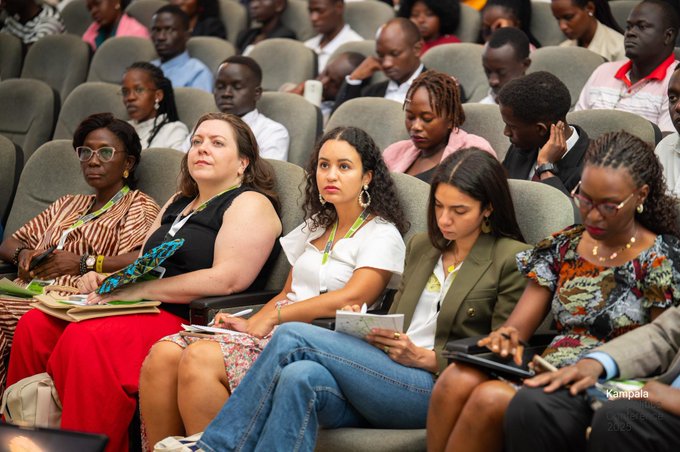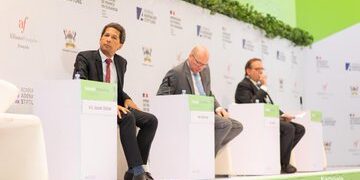The 8th edition of the Kampala Geopolitics Conference (KGC) opened at Makerere University this week under the theme “The African Dimensions in International Debates”, bringing together academics, diplomats, students, and cultural leaders to explore Africa’s evolving role in global affairs.
Speaking on behalf of the Makerere University Vice Chancellor, Prof. Barnabas Nawangwe, Dr. Hellen Nambalirwa Nkabala, Principal of the College of Humanities and Social Sciences, highlighted the university’s ongoing commitment to meaningful international dialogue.
“We gather to start conversations, and maybe also to continue them, on the African dimensions in international debates,” said Dr. Nkabala. “It is always a joy to see these discussions take root—especially in a setting like this where the youth, scholars, and thought leaders come together to reflect on our continent’s position in global geopolitics.”
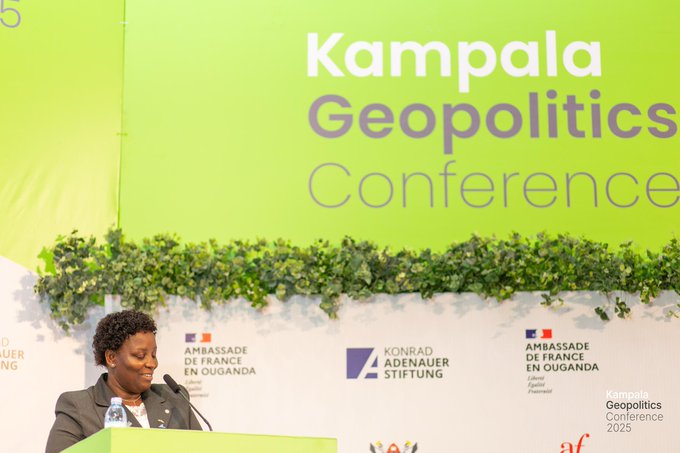
Dr. Nkabala also noted Makerere’s resilience in the face of digital misinformation, emphasizing the importance of thoughtful regulation in the age of artificial intelligence. “It is daunting to see how technology can be used to mislead and disenfranchise populations, especially in young societies like ours,” she cautioned. “This is why our discussions on AI and misinformation are vital.”
His Excellency Xavier Sticker, the French Ambassador to Uganda, lauded the KGC as a pillar of intellectual exchange. “This conference is not only a trusted partnership between Makerere, the French Embassy, and the Konrad Adenauer Stiftung, but a platform deeply rooted in Uganda’s media, research, and cultural landscape,” he said. “Africa must not just be part of the debate—it must shape the debate.”

Ambassador Sticker also addressed critical maritime issues. “Though Uganda is landlocked, disruptions in global shipping routes, like in the Red Sea or Gulf of Oman, impact trade, supplies, and security here,” he stated. “We must discuss how Africa participates in securing these vital global commons.”
Nils Wörmer, Director of the Konrad Adenauer Stiftung’s Regional Programme Security Dialogue for East Africa, emphasized the urgency of including African voices in shaping multilateral institutions. “Our first panel will focus on efforts to secure permanent African representation on the UN Security Council,” he announced. “This isn’t just about fairness—it’s about sustainability in global governance.”
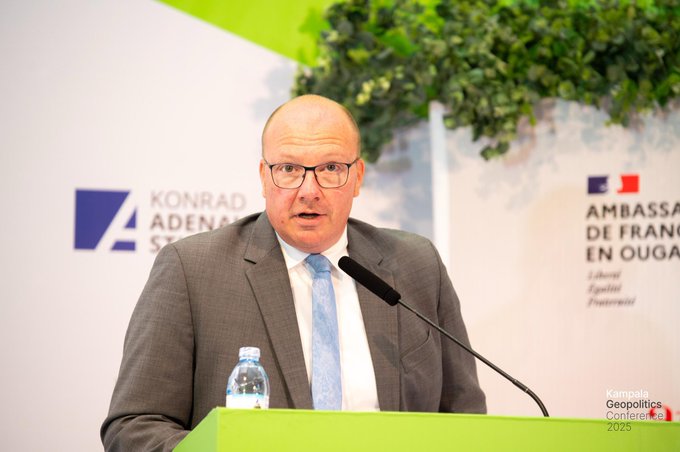
Wörmer also addressed international security, referencing the war in Ukraine and its ripple effects. “Germany and the EU have concluded that they are no longer at peace as we knew it,” he said. “Hybrid warfare, cyberattacks, and disinformation threaten democratic institutions—not just in Europe but globally.”
Éric Touzé, Director of Alliance Française Kampala, took a cultural approach. “The KGC brings together not only academics but also artists and social figures,” he said. “Cultural expression is political, too. This year, we’re celebrating regional diversity with performances that complement the day’s debates—providing moments of reflection and connection.”
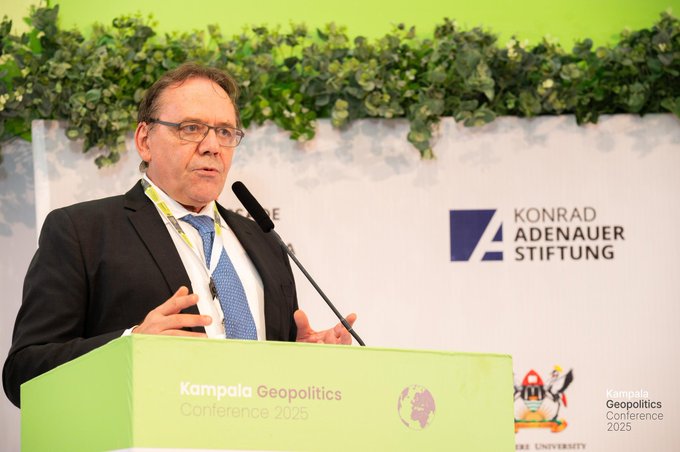
Touze concluded with a vision for the future: “I dream of a day when African cultural institutions are at the very center of global debate. Cultural resilience is also a geopolitical strength.”
As panels continue over the next two days, attendees are expected to discuss AI regulation, regional peacekeeping in Africa, maritime security, and Africa’s relationships with global powers. The Kampala Geopolitics Conference remains a critical space for redefining Africa’s voice in shaping global realities.
